How to Recover Deleted Folders from a PC in Windows 11/10
Mistakes happen. Maybe you were distracted and deleted the wrong folder, or perhaps you knocked the delete key without realizing. Either way, the folder is deleted, along with all of the data in it.
Deleting a folder full of files isn’t the worst thing that can happen. In fact, it’s one of the easier data loss scenarios to get your data back from, assuming all the conditions are right. We’re going to show you how to recover deleted folders from a PC.
Immediate Actions Right After Deleting a Folder
Your best chance of restoring the deleted folder is right after it was deleted. Here are some really quick preliminary steps you can take to try and restore the folder and set yourself up for a successful recovery:
- Try Ctrl + Z (Undo Delete). While File Explorer is the active program, and as long as deleting the folder was your last action, pressing Ctrl + Z will undo the most recent delete command, restoring the folder to its original location.
- Check the Recycle Bin. The Recycle Bin is where deleted files go before being permanently deleted. There are a few conditions where files skip the Recycle Bin, but in most cases, your deleted folder will be there.
- Stop using the drive immediately. If you had no luck with the previous two steps, you should stop using the drive now. The folder is likely deleted, and continued use of the drive puts it at risk of being overwritten and lost forever.
How to Find Out if a Deleted Folder Can Be Recovered
If you were unable to restore your deleted folder from the Recycle Bin, you will need to use data recovery software to recover shift-deleted files, folders emptied from the Recycle Bin, and others that skipped the Recycle Bin for one reason or another. When trying to figure out the recoverability of your data, there are a few factors to keep in mind, such as:
- How long the data has been deleted. The longer the data remains deleted, the higher the chance that your files will be overwritten by something new, rendering your data unrecoverable. Acting fast improves your chances.
- The type of drive the data was lost from. Internal and external hard disk drives (HDDs) and flash drives retain data until it’s overwritten, making them better for recovery. Solid-state drives (SSDs), however, use TRIM, which allows data to be permanently erased shortly after deletion. Therefore, SSD users must power off the drive immediately and avoid using it until they create a byte-level backup.
- The drive’s condition. Checking the S.M.A.R.T. status of your drive gives you a good indication of its overall condition. A rapidly increasing number of reallocated sectors, for instance, tells us that something is causing sectors to go bad. This isn’t to say recovery is impossible just yet, just that time is of the essence.
- File system type. Your recovery options are impacted by what file systems are supported by your recovery software of choice. NTFS, FAT32, exFAT, and HFS+ are all common file systems, and so it’s best to find a solution that works with them all.
These are arguably the most important factors to consider when it comes to recovery, as they play a major role in how successful each recovery method will be.
Use Recovery Software to Retrieve Lost Folders from PC
Data recovery software is the only DIY lifeline you have if a backup isn’t available. Something to note, however, is that not all data recovery software is the same. Our team of recovery experts has tested a range of recovery tools to prove their efficacy in this situation.
Using Disk Drill to Recover Folders
Let’s start with Disk Drill. Our editorial team prefers Disk Drill over other tools because of its intuitive user interface and high recovery rates uncovered through real-world testing. It can locate and recover files in hundreds of different file formats with the original folder structure, even if the files or folders have been permanently deleted. Folders that were in an emptied Recycle Bin can easily be recovered with a few clicks. It provides an effective solution to recovering from a data loss scenario. The application can be used to restore deleted folders from virtually any type of internal or external hard disk.
Here’s how to recover deleted folders using Disk Drill data recovery software. Simply follow these steps.
- Download and install, and launch Disk Drill for Windows.In order to avoid the possibility of overwriting the folder you wish to recover or file corruption, do not use the disk or partition that contained that folder.
- Select the disk or partition that contains the folder to be recovered. Selecting the disk will yield more results than just the partition.
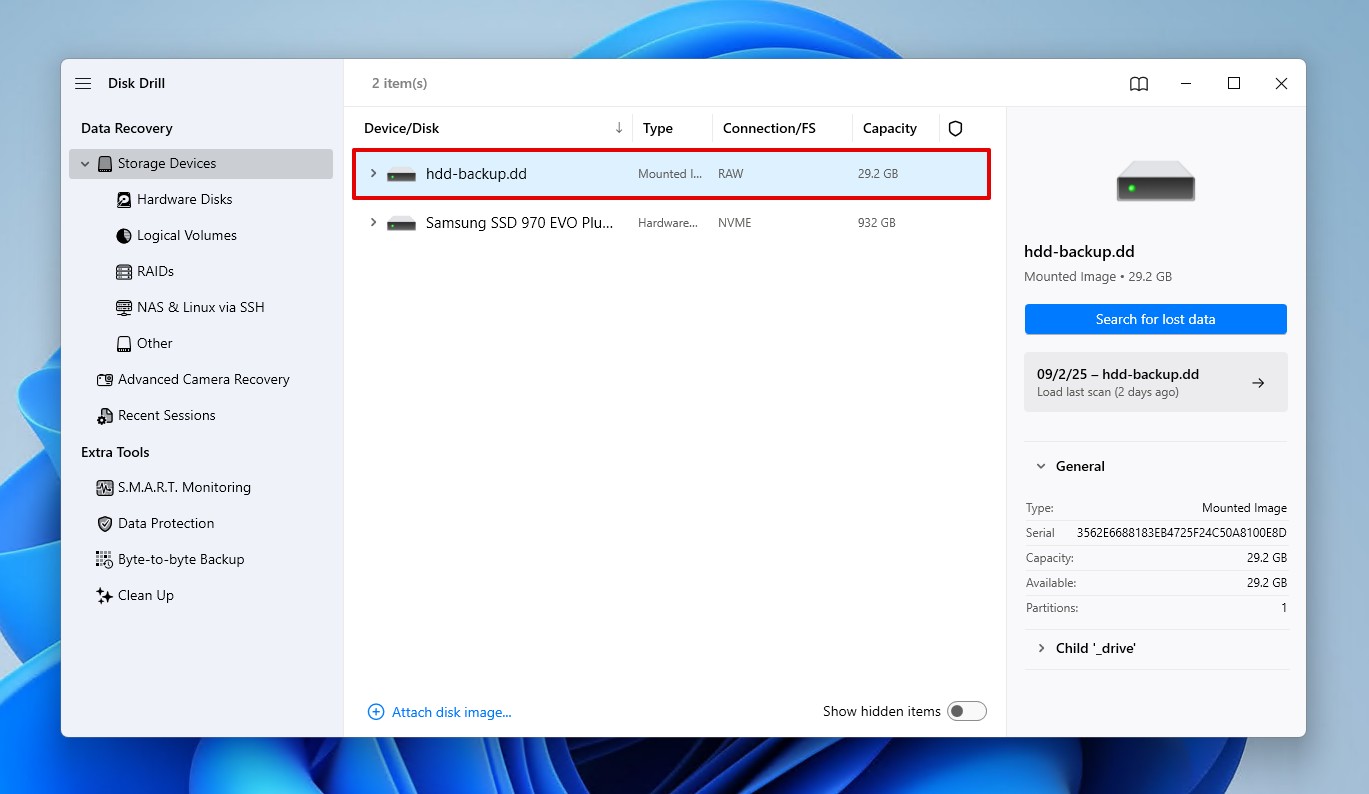
- Click the Search for lost data button. Then, click Universal Scan to start the all-in-one scan for all recoverable files and folders.
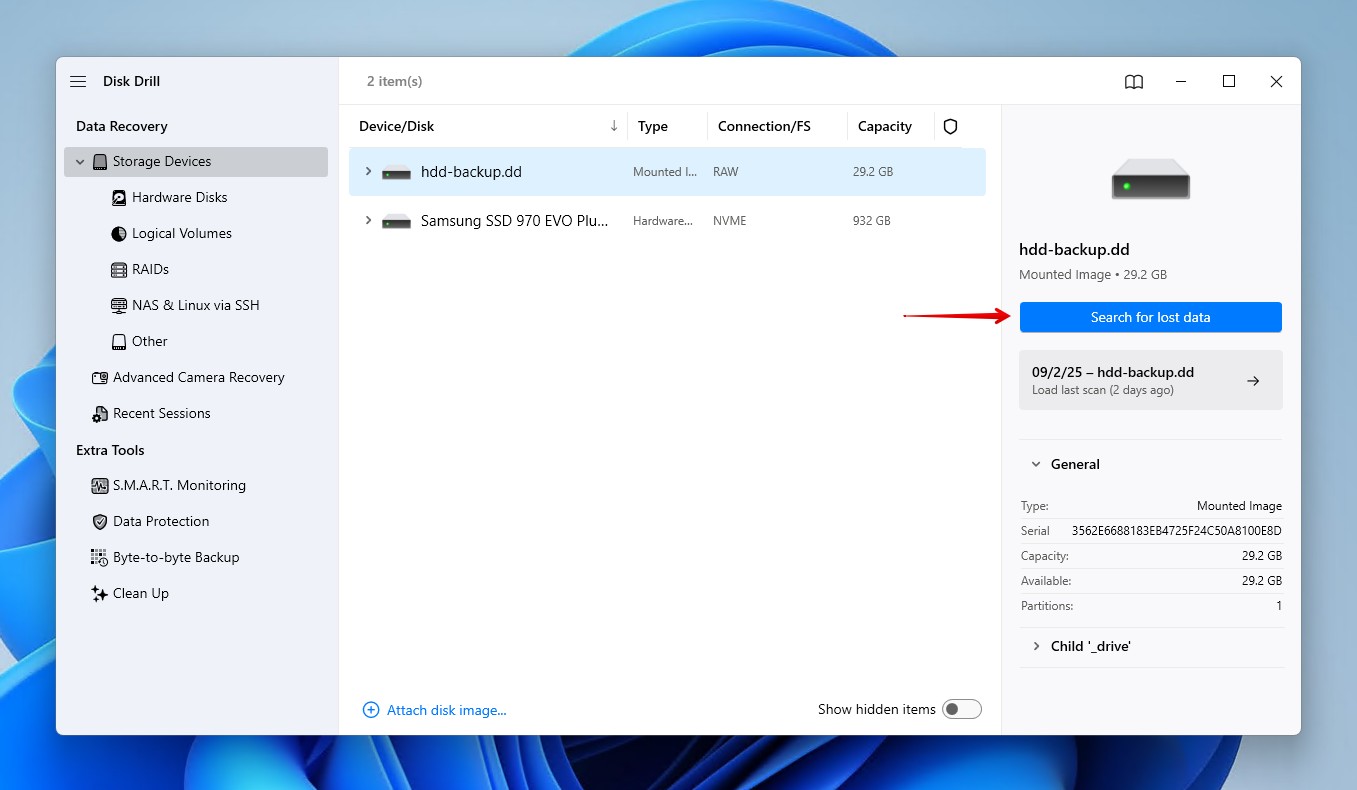
- Click Review found items to explore your files. You can start exploring the data as it comes through, but wait until the scan is finished to perform recovery so you don’t miss any files.
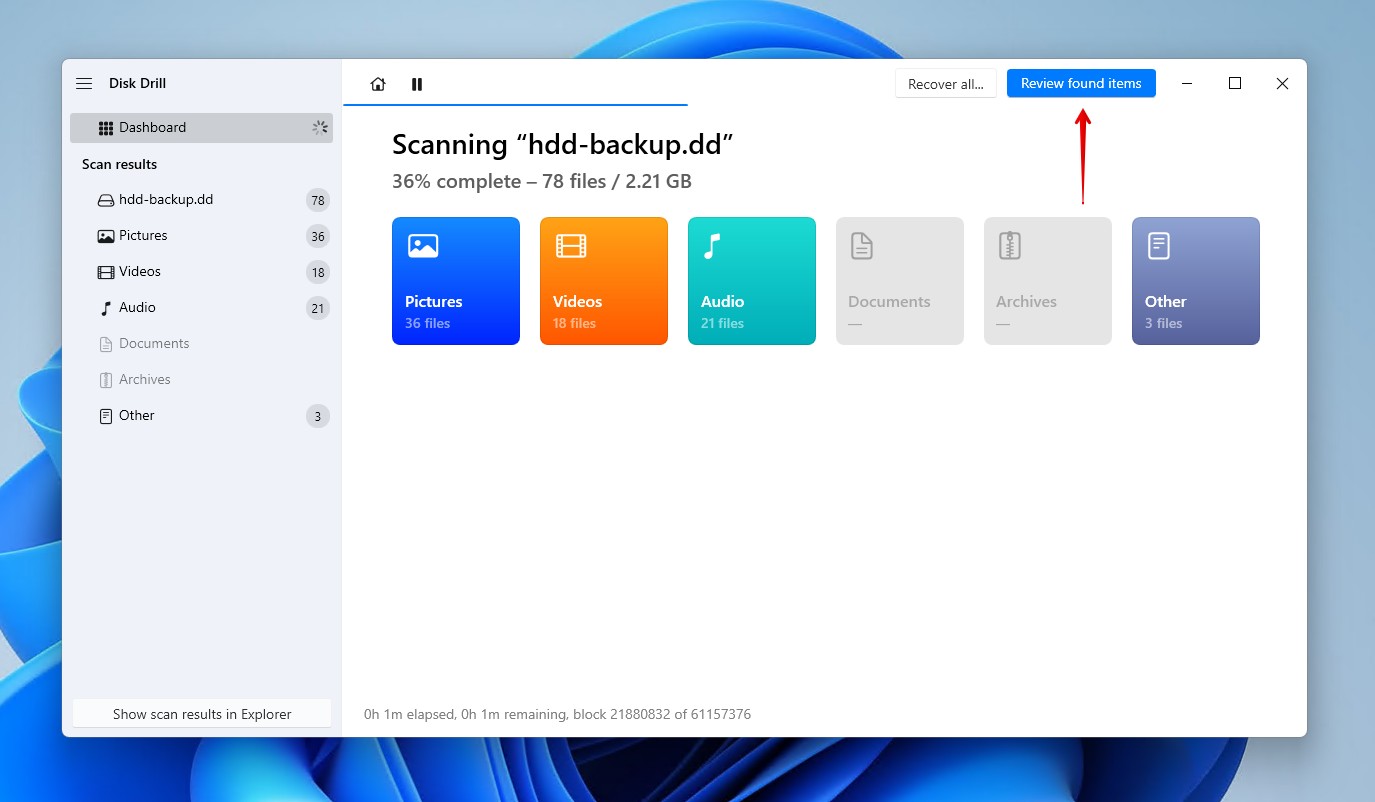
- Preview the list of files and folders returned by the application that are available for recovery. Use the filter options to organize the results to your liking.
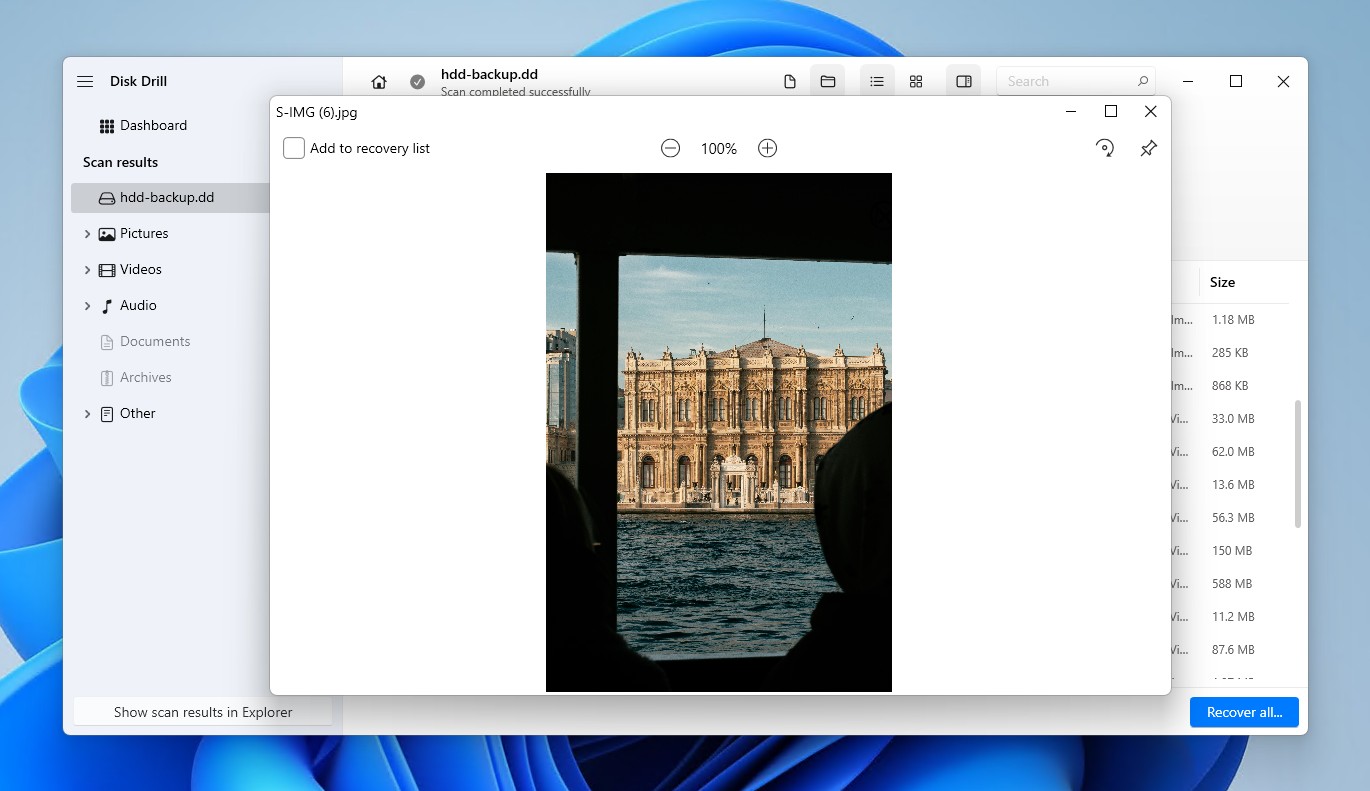
- Choose the folder or individual files inside the folder you wish to restore by ticking the checkbox next to each. When ready, click the Recover button.
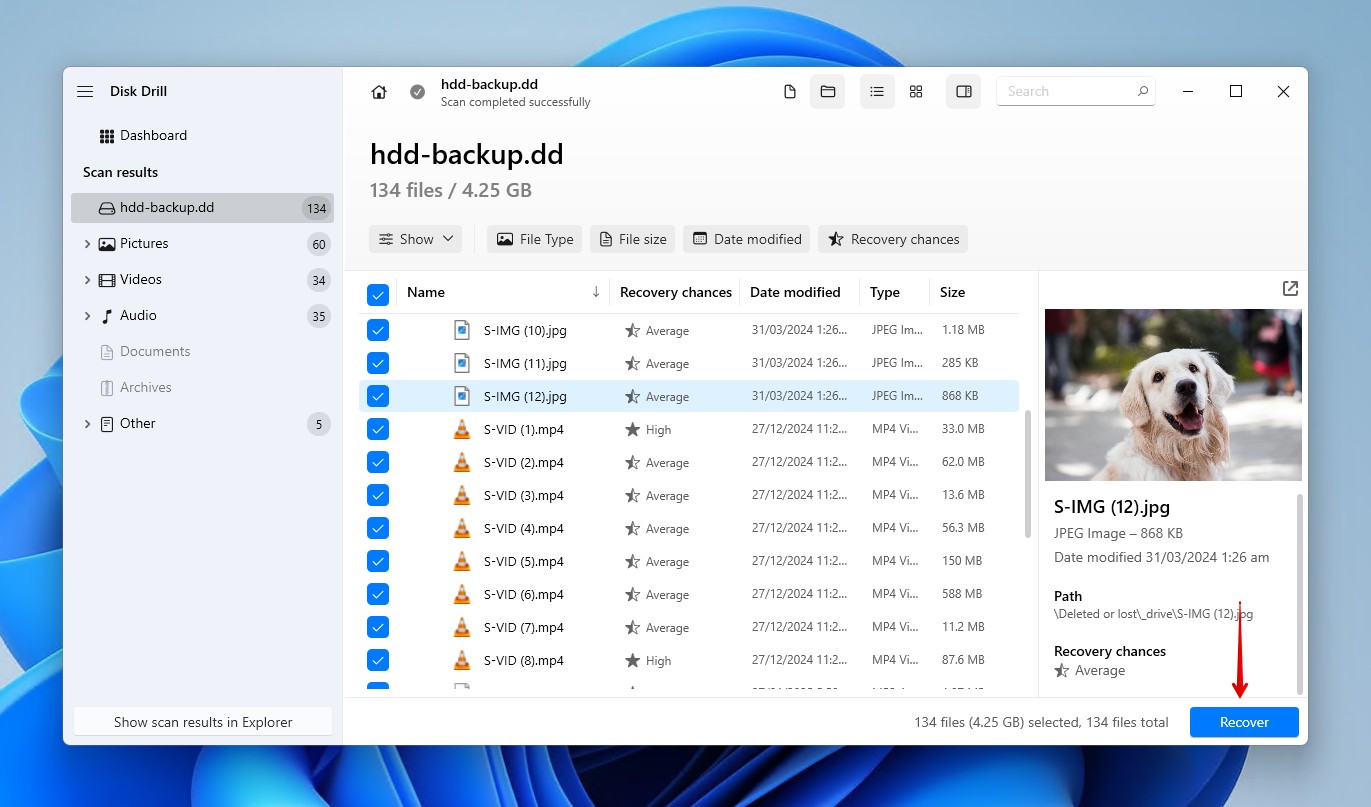
- Choose a recovery location on a separate physical device, then click Next to complete recovery.Designate a place to store the files. Do not use their original storage location to minimize the chances of files being overwritten during the recovery process.
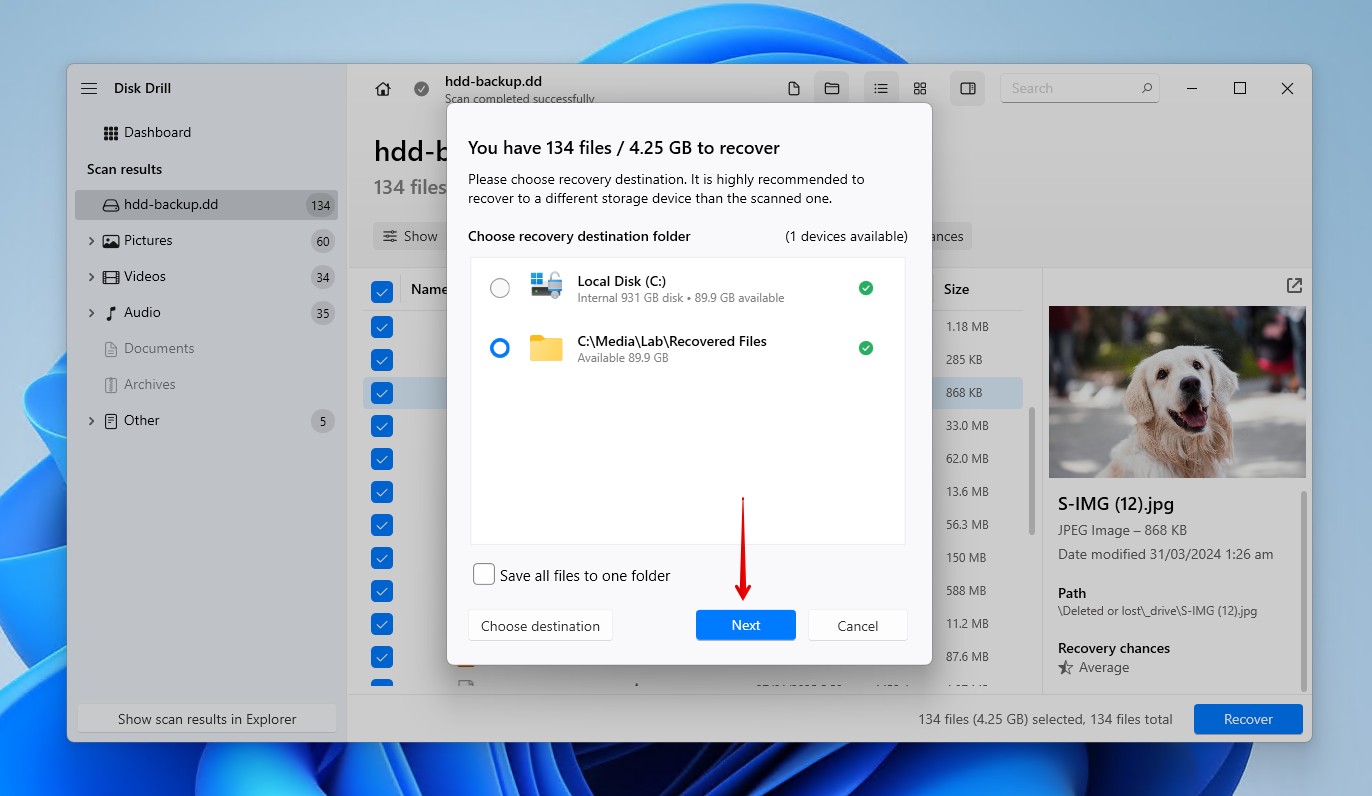
Disk Drill is capable of identifying the drive’s data with its original names and file structure, allowing you to easily locate and recover the folder in the scan results. However, if the file system information is corrupted, you will need to look for deleted files manually.
Why Disk Drill Is the Best Choice for Folder Recovery
There’s more than one reason why we chose Disk Drill for this task. In addition to ensuring its safety and efficacy in real-world deletion scenarios, here are some reasons we found while testing the software:
- Recovery proficiency. In all our tests, it demonstrated a high recovery success rate for both recently deleted and permanently deleted folders.
- Usability. The user interface is simple and streamlined, making the recovery process easy even for beginners.
- File system support. All Windows file systems (NTFS, FAT32, exFAT, etc.) are supported, along with the devices that use them.
- Preview function. Lets you preview the contents of files and folders to confirm they’re recoverable, important for any recovery.
When the Folder Structure Cannot Be Restored
There are some instances where the damage has caused the original folder hierarchy to be lost, even if the files themselves are recoverable. In such cases, you’ll need to manually search for the folder’s contents. Why does this happen? Well, there are a few reasons.
This can happen when the file system metadata (MFT entries) that describe the folder and its contents are deleted or overwritten. It can also be due to severe file system corruption or unsupported storage scenarios, like damaged RAID arrays. We go more in-depth in our guide on recovering deleted files with their folder structure.
Alternative Methods of Recovering Deleted Folders in Windows
Here are some methods that may be used to recover deleted folders without the need for recovery software. We’ve added notes to each method explaining when they’ll be viable.
Method 1: Search for Folders in Windows – They May Not Have Been Deleted
Searching for the folder can save you a lot of time trying to recover something that was never deleted. This should be used in cases where you’re not certain you actually deleted the folder. Thankfully, Windows makes it pretty easy to search for data. Here’s how:
- Open File Explorer.
- Go to This PC.
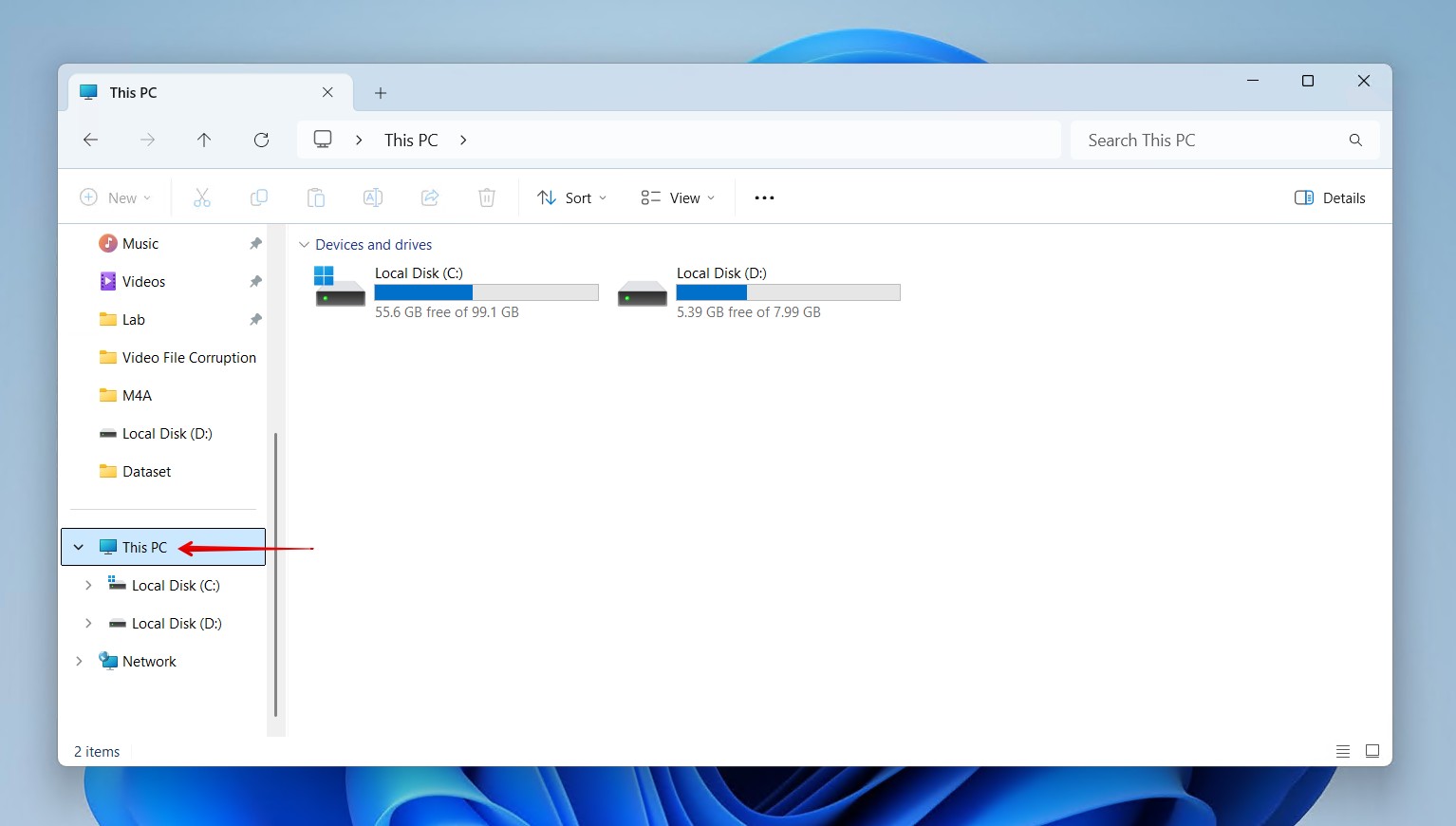
- Enter the folder name in the search box at the top-right, then press Enter.
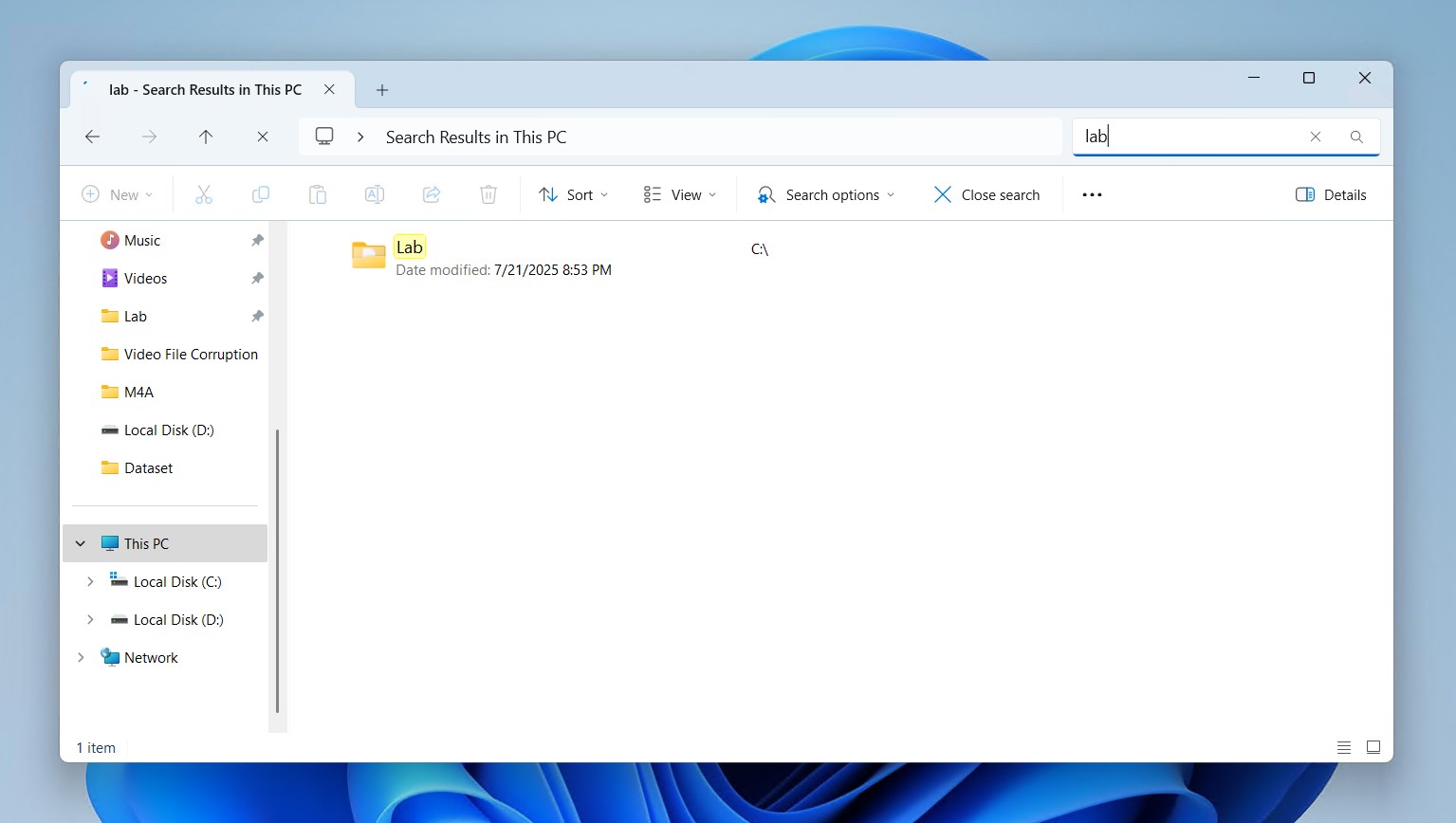
Method 2: Recover Deleted Folders from the Recycle Bin
In the case of recently deleted folders, using the Recycle Bin should be your first course of action. It offers a quick way to potentially recover your lost data.
To do so, follow these simple steps.
- Open the Recycle Bin by double-clicking or right-clicking and selecting Open.
- Choose the folder you want to recover.
- Right-click on the folder and select Restore.
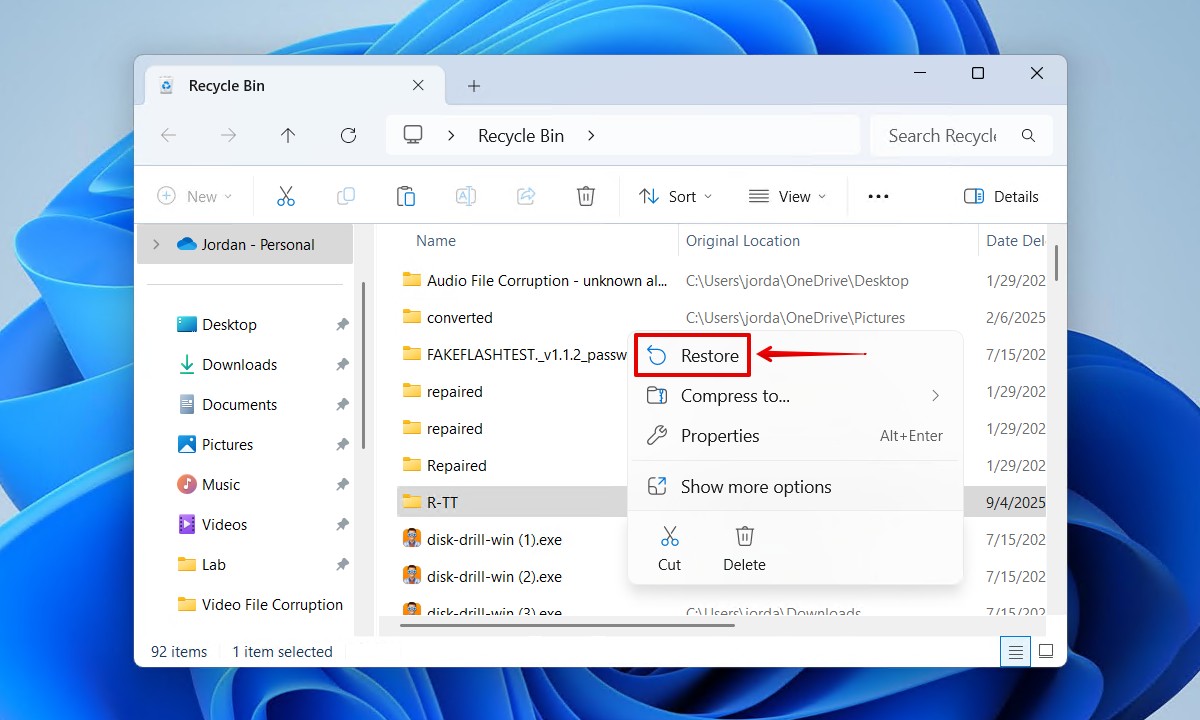
This method will only work if you have not emptied the Recycle Bin. Once you have done that, data recovery software is the only way to get back that exact copy of the folder.
Method 3: Restore a Previous Version of the Folder
It is possible that you can restore the folder to a previous version.
Follow these steps to try this method.
- Open File Explorer.
- Navigate to the folder that you want to recover.
- Shift right-click the folder and select Restore previous versions from the menu.
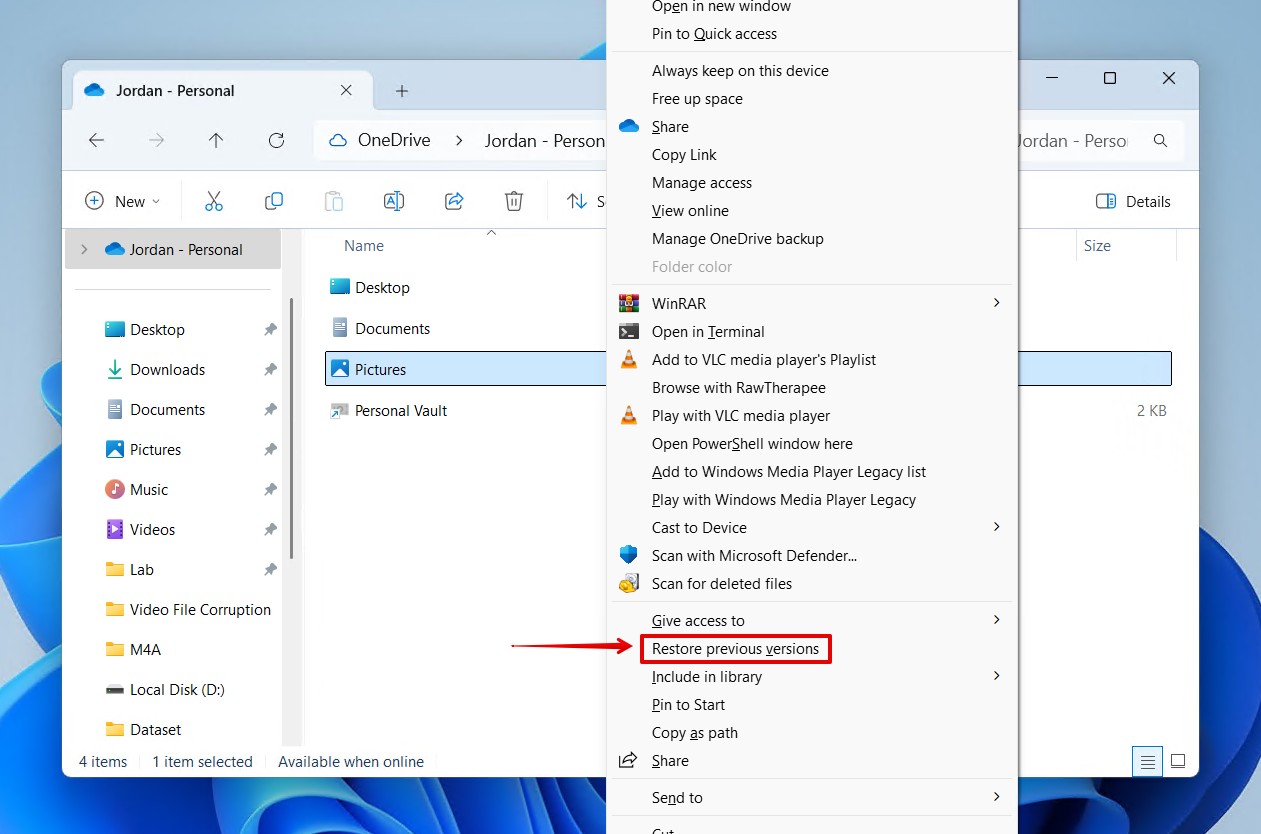
- Select the version you wish to recover from the list provided by Windows. The Restore button will restore it to its original location, or click the little arrow on the button and choose Restore to if you want to restore it somewhere else.
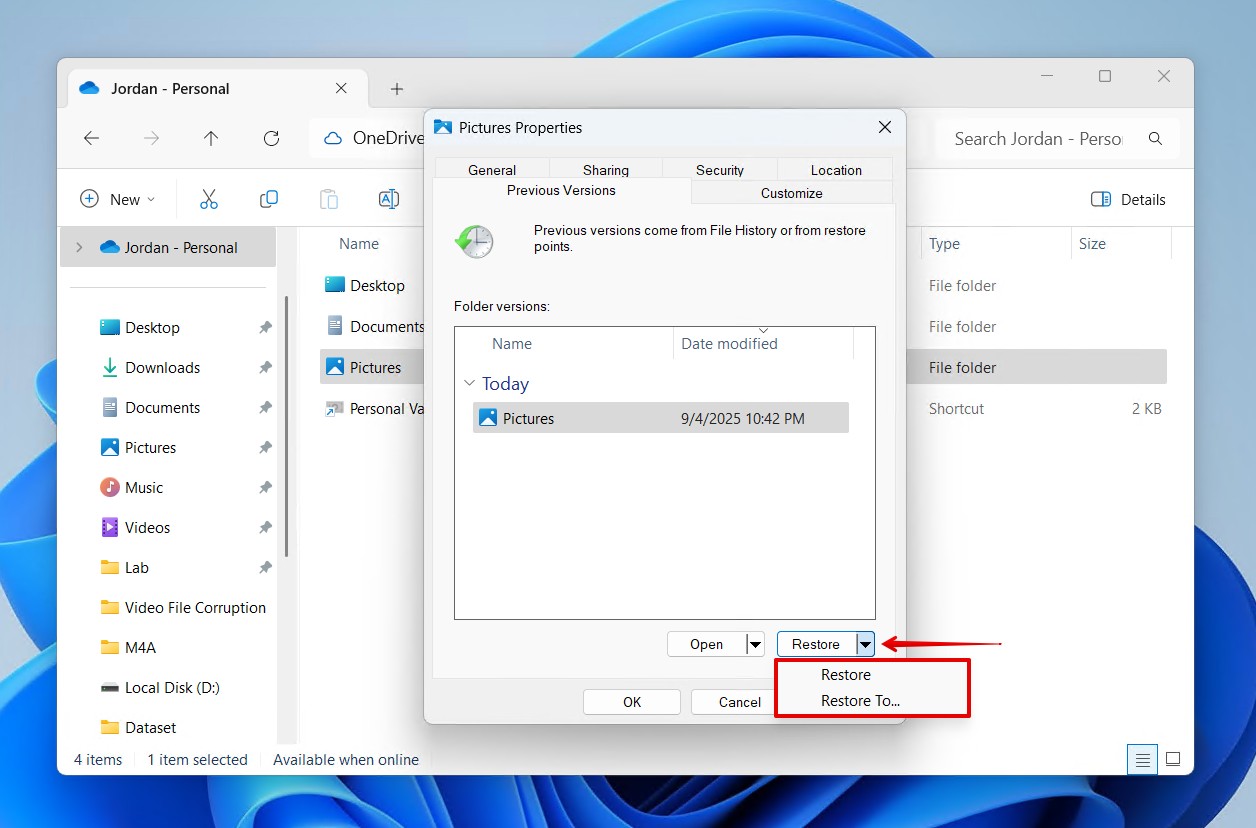
Method 4: Check Cloud Storage for Deleted Folders
Storing data in the cloud isn’t as uncommon as it once was. OneDrive is now included with the installation of Windows, and services like Google Drive and Dropbox serve as a similar means of easily backing up your data in the cloud. When you delete a folder from your local system, it may still remain in the cloud before it syncs. Cloud services like this also have a deleted items folder, where items are sent before being permanently deleted. This deleted items folder doesn’t sync with Windows, so it might hold your deleted folder even after you’ve emptied your PC’s Recycle Bin.
We’ll demonstrate how to do this with OneDrive:
- Sign in to your OneDrive account.
- Explore My files to see your stored data.
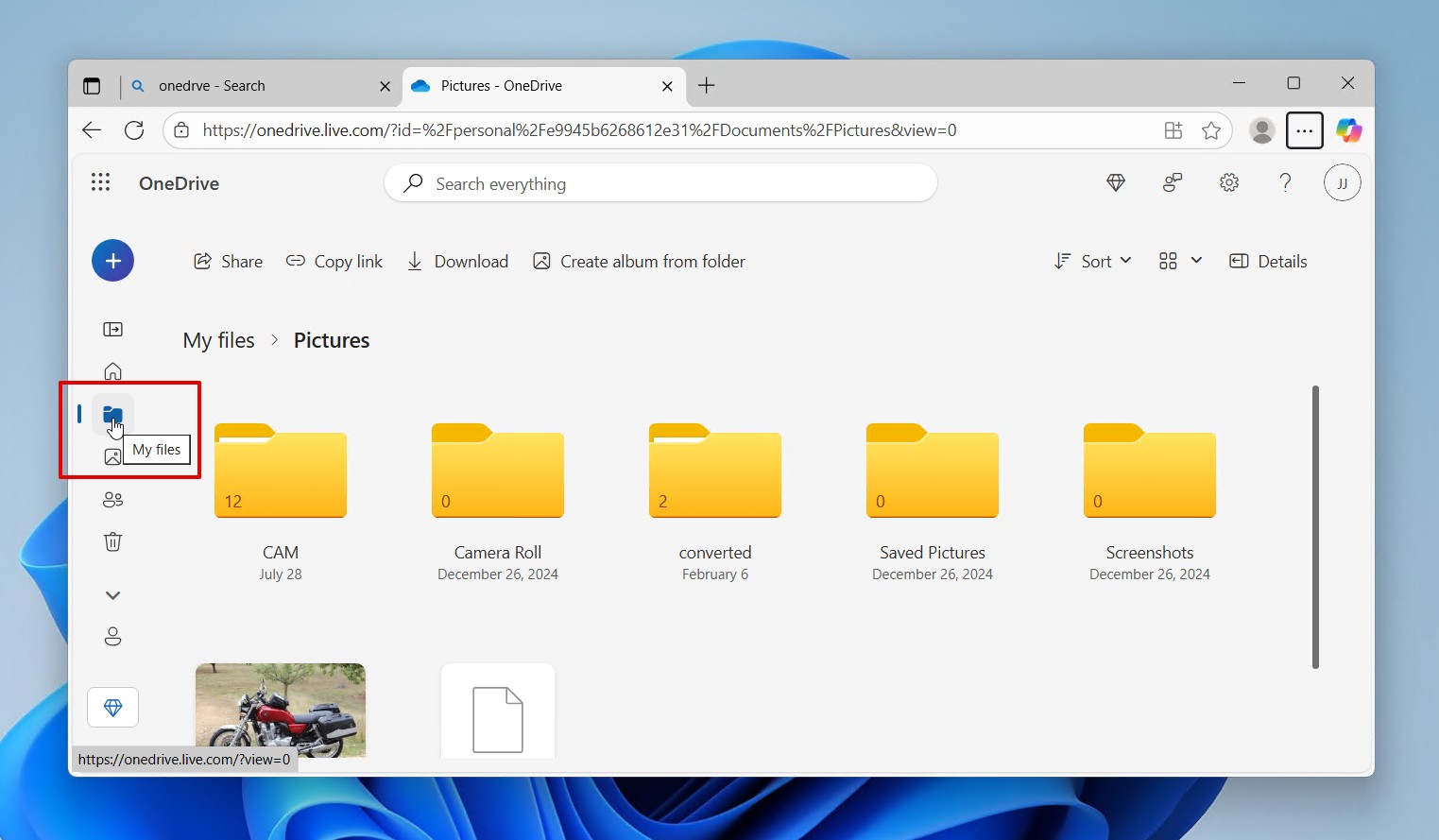
- Select the items you want to restore, then click Download.
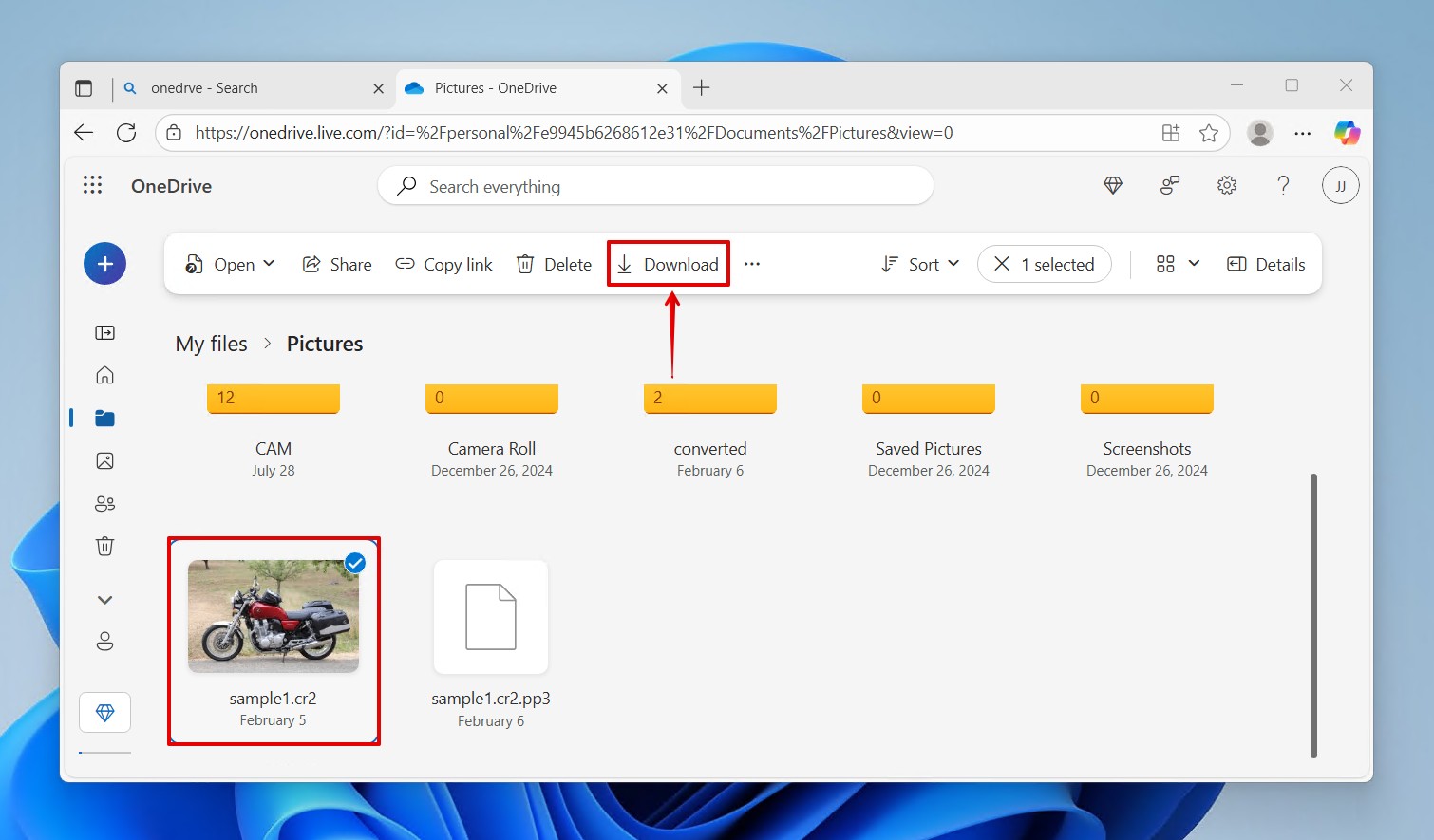
- Also, check the OneDrive Recycle bin for any deleted folders or files you can restore.
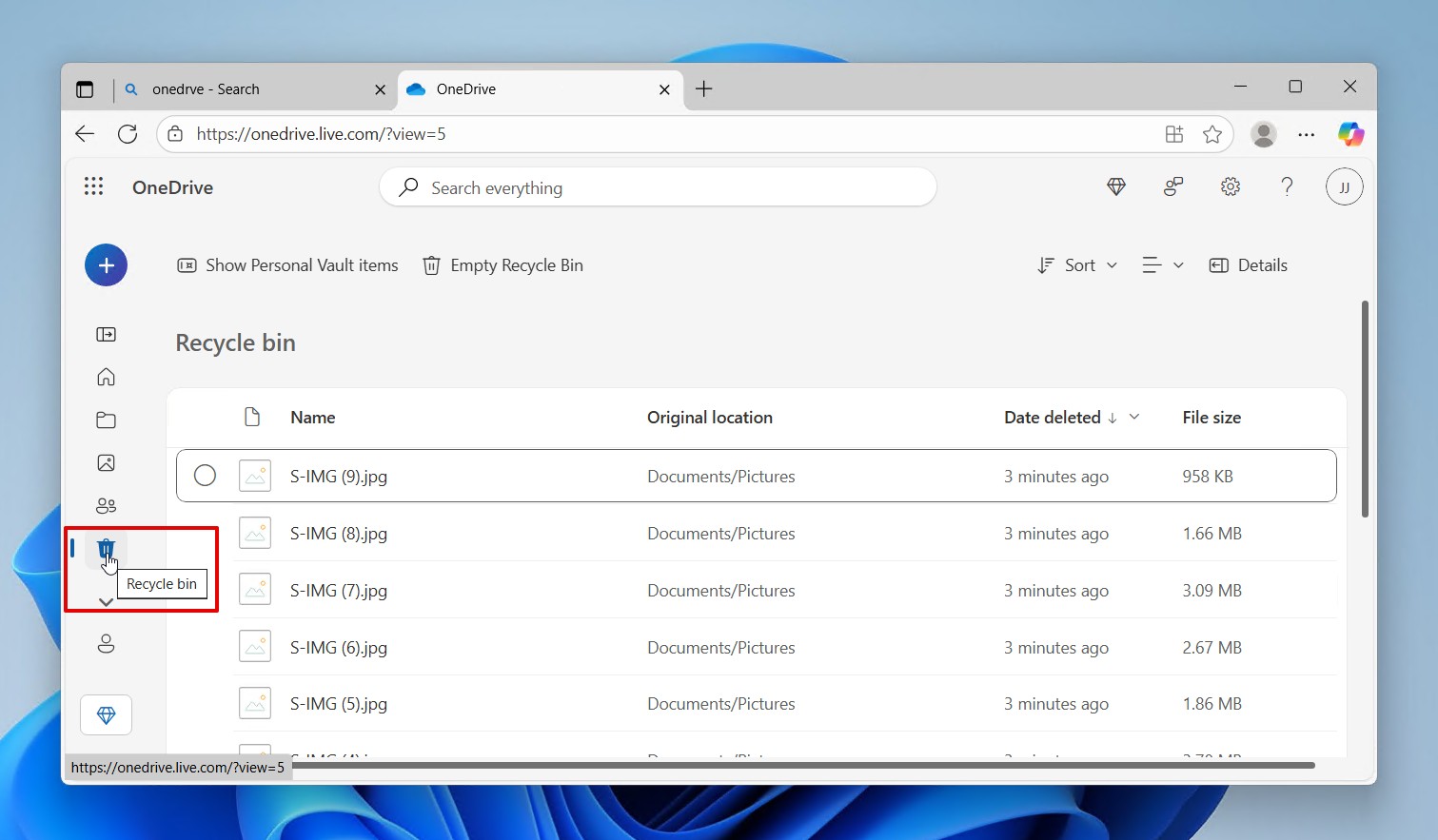
A Few Words About More Unique Cases of Lost Folder Recovery
In most cases of data loss, data recovery software will resolve it with ease. However, there are special, more complex data loss situations where recovery will be a little bit more challenging. We’ve included some of those unique cases below.
Recover Deleted Folders Over a Network
Folders deleted over the network will not be sent to any sort of Recycle Bin most of the time, as network drives do not support it. You should see if there are any snapshots, backups, or restore points. If you can’t find any, reach out to an administrator. When no backup exists, you or an admin must use specialized data recovery software to recover data directly from the server or mapped drive.
Recover Deleted System Folders
When a folder containing system files gets deleted or corrupted, your operating system (OS) might stop booting. In this case, data recovery software will only work if (a) you use a bootable USB to scan the drive using a live environment, or (b) you remove the drive and connect it to another system for recovery.
While these system folders and files can certainly be recovered with data recovery software, it’s unlikely to restore full system functionality. Therefore, you should reinstall Windows to guarantee the files are replaced. Alternatively, if the system folders that were deleted still allow you to boot, you can use DISM and System File Checker.
Recover Folders Deleted from a Virtual Machine
Folders deleted inside a virtual machine (VM) behave the same way as a real computer. Start with the Recycle Bin, and if it’s not there, try and search for the folder. If it’s deleted, you can either mount the disk image (VMDK, VHDX, etc.) inside the recovery tool and scan it, or install the recovery software inside the VM, scan, and recover.
If your VM is still bootable, installing the recovery software inside the VM is probably easier. However, if the VM isn’t booting, scanning the disk image is the way to go.
Frequently Asked Questions
How to protect your folder from unintentional deletion?
The most reliable way of protecting your folder from unintentional deletion is backing it up. While this won’t stop you from accidentally hitting the Del key or mistakenly deleting the wrong folder, it will keep a copy of the folder and its data available, allowing you to simply copy and paste it from your backup to your PC.
Can I get back folders removed with Shift+Delete?
Absolutely, so long as the data hasn’t been overwritten since deletion. You can use a data recovery tool (installed on a separate physical drive) to scan the drive containing the shift-deleted folder and recover it. This is the only option if a backup isn’t available.
Does emptying the Recycle Bin permanently delete folders?
While it’s technically referred to as “permanent deletion”, the word “permanent” is used loosely. In fact, the deleted folder itself still occupies the same physical space on the drive, allowing you to recover it. If you wanted something gone to the point of being unrecoverable, you must either securely erase it or fully format the drive to zero every sector.
Why are my recently deleted folders not being detected by any data recovery software?
Even though the folders were recently deleted from your computer or desktop, system activity may have resulted in them being overwritten and no longer available for recovery. This can happen when you download new files, install applications, and update your operating system. It can even happen in the background as the OS writes and deletes new and old data. A signature scan may find files if they’re not overwritten, but all file and folder metadata will be lost.
Can I restore a very large accidentally deleted folder on my external hard drive?
Yes. Permanently deleted data still physically stays on the drive until it’s overwritten, even on an external hard drive. However, continued use risks it being overwritten. At your first chance, you should connect your external hard drive to your computer and use data recovery software to restore the lost folder.
What other software can I use to recover folders?
Disk Drill is our preference due to its ability to recover data from a number of scenarios and storage devices while keeping the folder structure intact. But there are plenty of alternatives based on your situation. Microsoft’s Windows File Recovery is a free tool available in the Microsoft Store that can handle simple undelete tasks from NTFS, FAT, and exFAT-formatted devices.
- 48 publishings
- Auckland, New Zealand
Jordan Jamieson-Mane is a content writer with a focus on technology-related content. He has spent much of his life studying and working with all types of technology. During his time as a writer, he has written countless articles in the field of data recovery, breaking down complex topics into articles that are easy to understand.
When he's not writing articles on data recovery, Jordan enjoys traveling the world, reading books, and building websites.
- LC Tech FILERECOVERY Professional Review – Can It Compete with Modern Recovery Tools?
- UFS Explorer Review – A Powerful Recovery Tool With Lots to Offer
- Cisdem Data Recovery for Windows Review – A Capable Copy
- AnyRecover Data Recovery Review – A Polished Solution for Basic Users
- iBoysoft Data Recovery Review: Not Much to Offer
- Frisco, Texas, United States
Yevgeniy Tolkunov is Hardware Engineer at ACE Data Recovery. Yevgeniy has a Master's Degree in Physics, Information Technology; 15+ years of experience.
